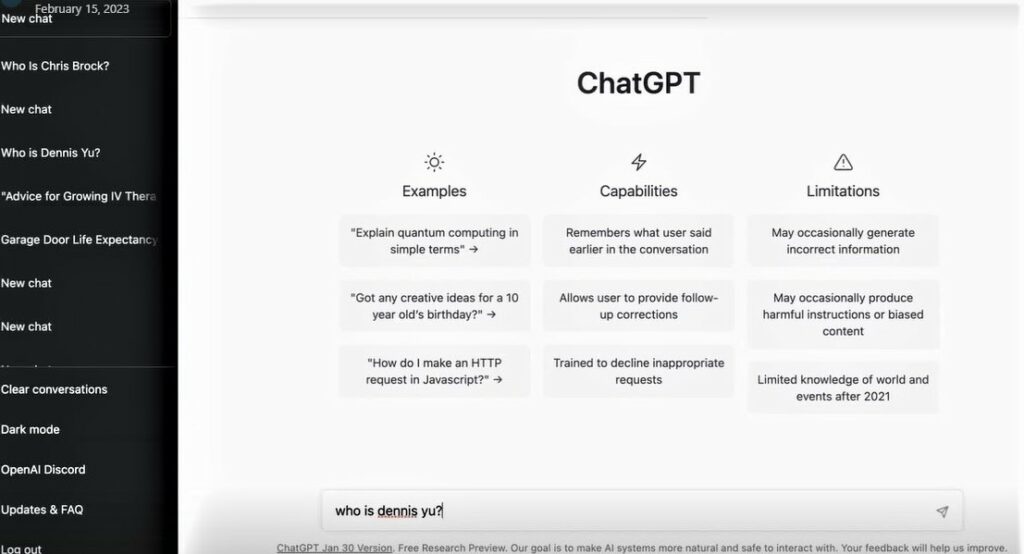Introduction
In recent years, artificial intelligence (AI) has made significant advancements and has begun to revolutionize various industries. It has a profound effect on content creation, particularly in search engine optimization (SEO).
With the introduction of AI-powered tools by major search engines like Google, and ChatGPT, the way content is generated and ranked has changed dramatically.

In this article, I explore the effect of AI on content creation, specifically in the context of personal injury SEO.
Revolutionizing User Experience with Tailored Answers
Google’s recent IO conference showcased the implementation of AI in its search engine. The new search functionality is highly conversational, allowing users to ask specific questions and receive tailored answers.
For instance, a query like “Is Arches National Park or Bryce Canyon in Utah more dog-friendly?” would generate precise and relevant results.
In the past, search results often provided information solely focused on one of the two locations, potentially leaving users without comprehensive answers. Frequently, you would just get links to those two locations and to forums like Reddit forums, where individuals who are not necessarily experts would provide answers.
However, with the integration of AI, Google now pulls information from authoritative websites, offering concise summaries and providing direct links to cited sources for further reading.
Content Strategy in the Age of AI: Quality Over Quantity
In light of these developments, content creators must adapt their strategies to address specific questions their target audience will likely have.
Gone are the days of producing low-quality content for the sake of quantity. I know in the past there have been tactics, not necessarily spammy, but just a call to action, that asks users to contact them to find out more or learn more to drive people, in order drive people to their website instead of answering the questions. So those are the types of things that won’t necessarily be shown.
Instead, the focus should be on producing high-quality content that strategically addresses users’ queries and provides accurate answers.
AI-driven search engines prioritize comprehensive responses, diminishing the efficacy of such tactics that aim to redirect users to a website without directly answering their questions.
To develop effective content,
- it is essential to understand the questions your clients frequently ask;
- engage with your intake team to gather a list of common inquiries, and
- ensure that your website provides in-depth responses to these queries.
The more precisely you address these specific questions and offer targeted answers, the more likely your website will be displayed in AI-driven search results.
Harnessing Data and Industry Expertise: Optimizing Content for Search Results
Utilize tools like Google Search Console to analyze how users find your website. For example, identify specific queries that lead users to your site, such as “herniated disc” or “herniated disc settlement,” and assess the content you have written on these topics.
If your website already appears in search results for these queries, consider expanding on the existing content or exploring related questions that you can answer. Evaluate the value and relevance of your content, ensuring it provides a comprehensive understanding of the topic, including typical settlement amounts or other relevant information.
Furthermore, it is vital to maintain industry relevance in your content creation. Google assesses whether the content matches the expertise of the business, so it is crucial to stay within the boundaries of your field.
For example, if you are an attorney specializing in personal injury, avoid writing about unrelated topics like architectural structures or the dog-friendliness of tourist destinations like Bryce Canyon.
Google’s algorithms are designed to recognize and prioritize websites that demonstrate expertise and authority in specific areas.
In addition to internal research, explore external sources of information. Conduct online searches and take note of the auto-completed questions that Google suggests. Look for related questions that users ask locally to gather insights and inspiration for your content. Leveraging tools like Google Analytics and Google Search Console can also provide valuable data on the questions your audience may have and help you identify content gaps that can be filled with well-crafted answers.
Maximizing Online Visibility and Staying Ahead of the Curve
As AI continues to evolve, it will undoubtedly impact traditional organic listings, PPC ads, local service ads, and other forms of online visibility. Keeping an eye on these changes will be crucial for staying ahead of the curve.
While search engines like Google will likely continue prioritizing revenue through advertising, as it is a primary revenue source, organic exposure remains significant.
Strive to achieve a prominent presence on page one of search results, including local service ads (LSAs), PPC ads, and maps, as this increases the likelihood of users clicking on your website.
It’s important to note that the AI tools showcased at Google’s IO conference are still in the testing phase, and adjustments will be made based on user feedback and further experimentation. Nevertheless, these tips provide a starting point for content creators looking to adapt to the evolving landscape of AI-driven search engines.
By focusing on quality content that directly addresses user queries, maintaining industry expertise, and conducting thorough research, businesses can position themselves for success in the age of AI-powered content creation.
Conclusion
In conclusion, integrating AI in content creation and search engine optimization has significantly changed the digital landscape. AI-powered search engines like Google have revolutionized the user experience by providing tailored and precise answers to specific queries. This shift emphasizes the importance of quality content that directly addresses user questions and provides accurate information.
Content creators must adapt their strategies by understanding the frequently asked questions of their target audience and providing comprehensive responses.
By harnessing data and industry expertise and staying ahead of the curve, businesses can position themselves for success in the age of AI-powered content creation and maximize their online visibility.
